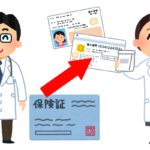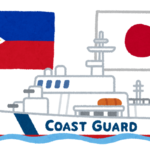
In the annual trafficking in persons report published by the U.S. Department of State, the Philippines was rated as Stage 1 on a four-point scale. Japan, on the other hand, received a rating of 2, one level lower than the Philippines.
The report commends the Philippines for "satisfactorily meeting" the minimum standards set forth in the United States Trafficking Prevention Act, including the establishment of the Standards of Practice for the Identification of Trafficking Victims (SOPs) in 2021 and the establishment of the Department of Migrant Workers (DMW) to centrally address the issue of overseas Filipino workers. The DMW is also recognized for its
In contrast, Japan has been given the unenviable rating of Stage 2 due to problems with its technical internship system.
Although the technical internship system has improved compared to previous years, there are still many cases where the technical internship program is still just a name, and Japanese nationals are forced to work for low wages in jobs that they do not want to do.
The purpose of the technical internship program was to allow Japanese companies expanding overseas to have their local employees work at their headquarters or factories in Japan to learn Japanese work methods and ways of thinking for use in their home countries.
Employees who returned to their home countries after receiving education were able to make use of the skills they had learned in Japan. Therefore, it was only natural that the company would cover the travel and accommodation expenses.
The technical internship program was institutionalized as a form of international contribution.
However, there have been many cases that are not in line with the original purpose of the program. Workers have been forced to work for low wages in jobs where their skills cannot be utilized in their home countries.
The Labor Standards Law also applies to technical intern trainees, but there are many problems, with violations found at more than 70% of accepted establishments.
More problematic is the exorbitant fees charged by some of the agencies that send technical intern trainees from overseas to Japan. These trainees come to Japan as technical interns with large debts from their parents and relatives. In other words, they are entering Japan as legal migrant workers.
It would be nice if they could still acquire skills in Japan, but we hear that in many cases the actual work is simple and useless back in their home country. Even if the work or human relations do not suit them, they cannot transfer to another office or change jobs. If this happens, technical internship becomes forced labor.
There is no end to the number of technical intern trainees who disappear because they do not want to stay in Japan, and the number of such trainees reaches several thousand every year.
Although these trainees should be protected and their problems solved, the reality is that they are arrested by the police as illegal aliens and deported. Japan is by no means a warm country for foreigners.
I believe that the technical internship system, which has no real substance, should be stopped in order to return it to the stigma of human trafficking.
Now, there is a part of this report that concerns me. It is the part about Filipino women working as hostesses in bars and other places. It is doubtful that such a case still exists, but the report states that 10 Filipinos have been victimized.
There was a time when Filipina pubs were established all over Japan and all were thriving. A United States trafficking report found that Filipinas who entered Japan as dancers and singers were working as hostesses. The Japanese government, in a panic, tightened the visa requirements for Filipinas to enter Japan, and as a result, they could no longer come to Japan to work. I suddenly remembered that.









